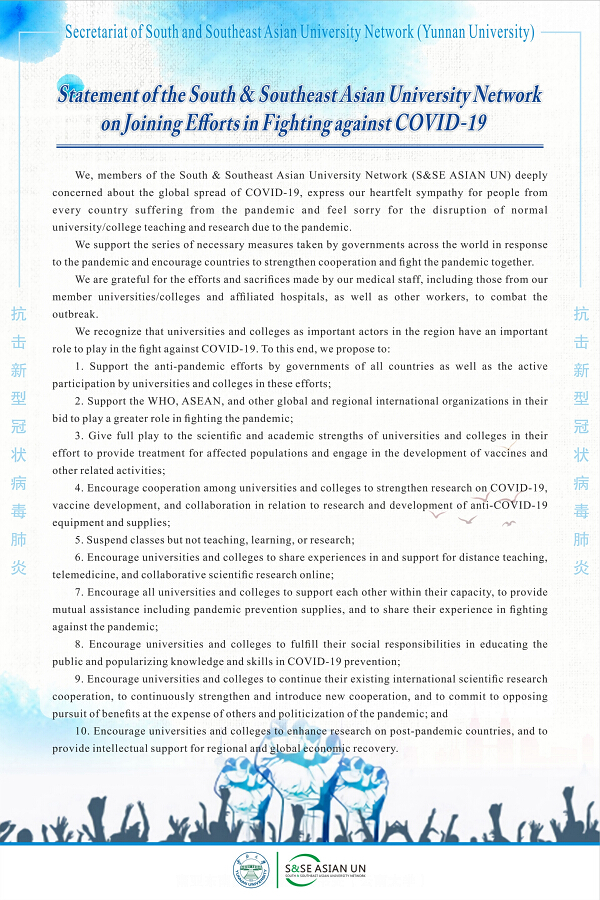Updated: 2020-05-21(Yunnan University)
A series of video conferences themed on COVID-19 epidemic prevention and control on the university campus are on the schedule of the South & Southeast Asian University Network, according to network officials.
The first activity — an online seminar entitled "Fight COVID-19 epidemic on campus" — was held on May 20.
The South & Southeast Asian University Network, also known as S&SE ASIAN UN, was launched and established by Yunnan University in 2018. It aims to further enhance cultural exchanges between China and South Asian and Southeast Asian countries, as well as build a regional higher education exchange and cooperation platform. The secretariat of the S&SE ASIAN UN is based at Yunnan University in Kunming, capital of Southwest China's Yunnan province.
The series of online activities will aim to better implement the spirit of the Joint Statement of South & Southeast Asian University Network on Joint Efforts in Countering COVID-19, which was launched by the S&SE ASIAN UN secretariat earlier and received a positive response from member universities.
A total of 60 universities from 12 countries — China, Vietnam, Laos, Cambodia, Thailand, Myanmar, Malaysia, Nepal, India, Pakistan, Bangladesh and Sri Lanka — signed the initiative, marshalling the resources of the universities in South Asia and Southeast Asia to fight the epidemic together.


The statement put forward 10 suggestions, including proposals that international universities support and participate in the anti-epidemic activities carried out by governments and organizations of various countries.
It also suggested the universities give full play to their scientific research advantages and strive to promote international cooperation in areas such as vaccine research and development, materials support and experience sharing. Yet another suggestion was that they support WHO, ASEAN and other global or regional organizations to play bigger roles in the fight against the epidemic — as well as ensuring that learning, teaching and researching are undisrupted even while regular classes are disrupted.